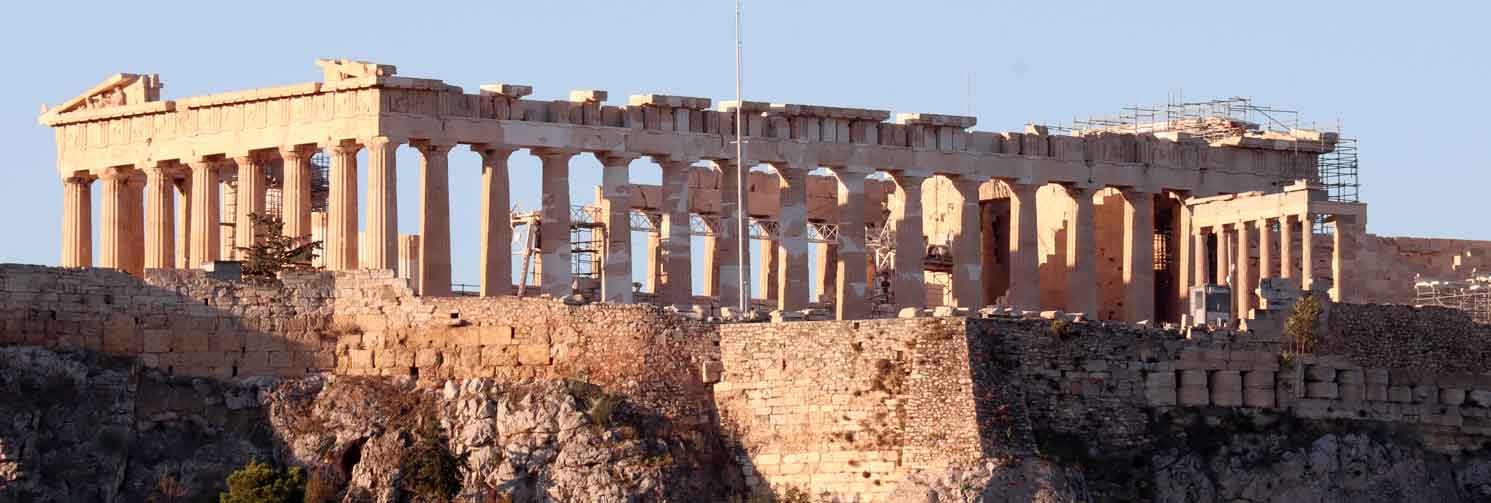Greece
Greece has an impressive geological resume, made of over 2,000 islands settled in the north-central region of the Mediterranean Sea complex including the Aegean and Ionian seas. Bordered in the north by Albania, Macedonia, Bulgaria and Turkey, Greece is the most southern country in Europe and has the longest shoreline of any Mediterranean country.
The ancient Greek culture is often said to be the most influential in the history of Western civilization. Greece has signs of civilization dating back to 2,000 BC on the island of Crete, which is Greece’s largest. It is well-accepted that the Western European culture that we know today started in Greece. Many of history’s greatest philosophers including Socrates, Plato, and Aristotle were Greek. As were some of the greatest mathematicians such as Pythagoras and Archimedes. Greece is also the home of the original Olympic Games.
“When preparing to travel, lay out all your clothes and all your money. Then take half the clothes and twice the money.”
~ Susan Heller
What can I expect from Greece?
The first Olympic games were held in the city of Olympia, hence the name, in the year 508 BC. At the time these games were held to honour Zeus, the king of the Greek gods. Originally only men were permitted to participate in the games, which included the sports of sprinting, long jump, discus, javelin, wrestling and chariot racing. Later, while under Roman rule, the games were banned in 393 AD, but were eventually restored in Athens in 1896. The Olympics have become one of the world’s largest sports spectacles in modern times.
For over 2,000 years, Greece was ruled by foreign nations, beginning when the Romans conquered Greece during the 2nd century AD. This period was followed by 400 years of rule by the Turks until 1832 when Greece reestablished its independence as a nation. Greece has a long and storied history including being one of the first countries to adopt Christianity and a democratic form of government. For many years following its independence Greece was ruled as a monarchy. The monarchy was abolished in 1975 in favour of a parliamentary form of government.
in late 2009, the Greek economy faced a significant crisis, largely driven by high levels of sovereign debt and shrinking gross domestic product levels. Today, Greece has largely recovered and the Greek economy is booming with a growth rate that is twice that of the average across the European Union region. Tourism is fueling much of this growth, which in turn has driven a need for construction and service workers. During our visit, the signs of a healthy economy were clear. Restaurants, resorts, inns, and many of the other amenities one would expect were both abundant and of high quality. The markets, restaurants, and shops were certainly busy with visitors and locals enjoying their offerings and supporting the economy.
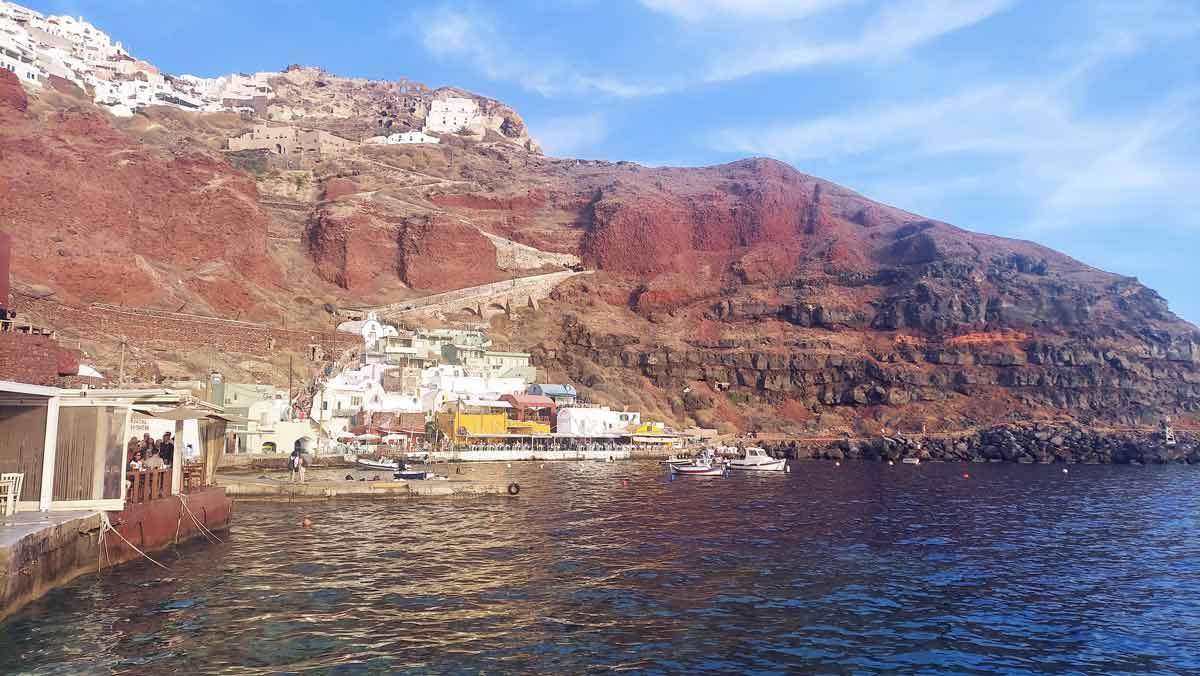
What to Know Before You Go
Climate & Seasons
Greece is well known for its warm climate, beautiful landscapes, historical sites, and amazing beaches. With over 33 million visitors each year, Greece has become one of the most popular warm weather travel destinations in the world.
The Greek climate is classified as Mediterranean, which means that you should generally expect mild but wet winters with hot and dry conditions during the summer months. However, the Greek geography includes many regions with varying micro-climates and weather conditions. The Northern Greek mountainous regions can be cold with significant snowfall in the winter. The southern islands and lower areas will be hot and dry during the summer months. It’s best to pack accordingly, depending on when and where you plan to visit Greece.
The climate in Athens, which is in the southern portion of the country is very warm with average daily high temperatures of 88 F to 94 F (32 to 34 C) and lows ranging between 71 F and 76F (22 C and 24 C) during the summer months. In contrast, during the same season, the northern regions experience highs from 80 F – 84 F (26 C – 29 C) and lows from 55 F to 50 F (13 C to 15 C).
The best season to visit really depends on your interests and preferences. Generally the most pleasant months to visit are between March and May and between September and November. The winter seasons are generally the most quiet from a tourism perspective, reducing crowds and often offering good deals on accommodations. The spring months can be a beautiful time with wildflowers in bloom across the lush mountains that over 80% of the country.
We visited in September and found the temperatures to be very pleasant, with plenty of sunshine. The weather was dry with little ran, and hot temperatures in the areas that you would expect, and more moderate temps in the islands.
The Language
Of course, modern Greek is the official and most commonly spoken language in the majority of Greece. No surprise there. There are several regionally specific dialects of traditional Greek that you may encounter depending on where you travel.
English is the most commonly used foreign language, followed by German, French, and Italian. During our trip, we didn’t have any problem finding English speakers, menus, and the like. If you travel to the less touristy areas, you may find that foreign languages are much less common among the locals. Your favourite translation app on your mobile device can be very helpful in this situation.
The Greek alphabet is significantly different from the letters used in traditional Latin languages. It is based on an ancient writing system dating back to 1000 BC. This can make learning the Greek language rather challenging for those of us who natively speak other Western languages as well as for those speaking non-Latin-based languages. Many Latin-based alphabets used across Europe, North America and other parts of the world are a direct descendant of ancient Greek.
Overall, the Greeks were very friendly about language and communication and accommodated us well. As native English speakers, we had no problem communicating with others on our trip. We were a bit apprehensive given the apparent complexity of the Greek language but we found everyone we encountered to be friendly and accommodating. We did find that learning a few basic Greek words for things like “hello” (“Γειά σου” pronounced “Geiá sou”), “please” (“Σας παρακαλούμε” pronounced “Sas parakaloúme”) and “thank you” (“Ευχαριστώ” pronounced “Efcharistó”) will go a long way with the locals as well.
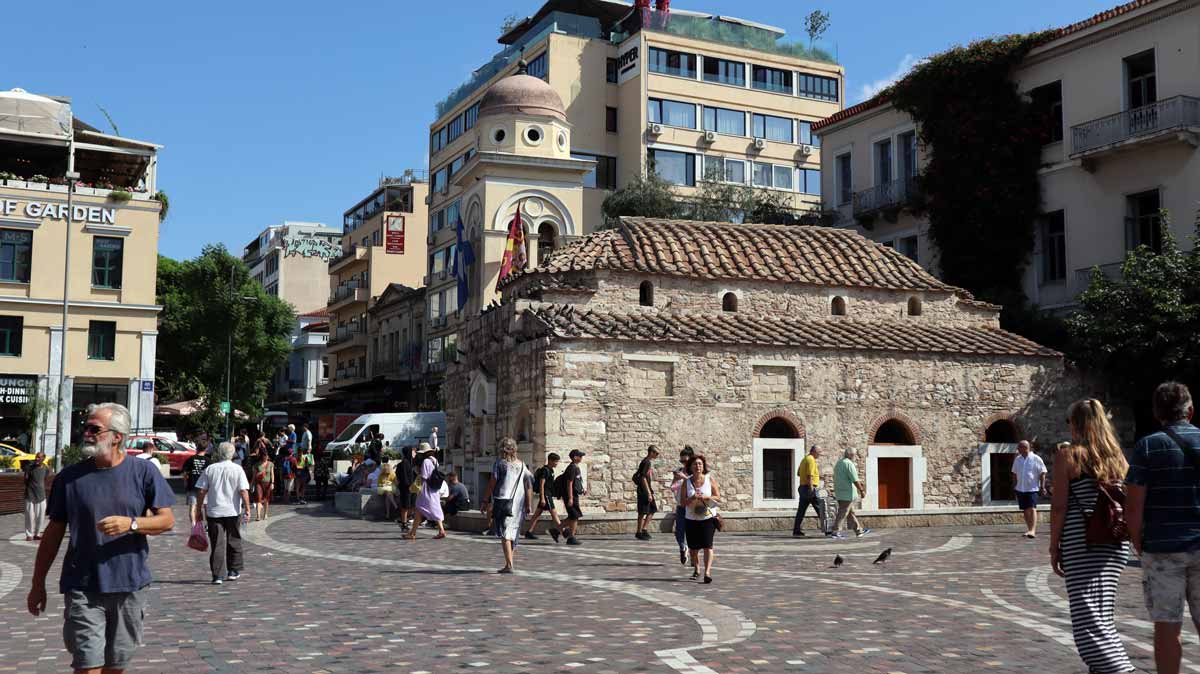
Culture & Religion
Religion has long been a very important part of Greek culture, dating back to the earliest days of Christianity, and even before. 98% of Greeks identify as orthodox Christians and the national holidays, family traditions, and social structures are often aligned accordingly.
As we traveled the Greek countryside this was apparent given the large number of small Christian churches that seemed to be at the centre of many private properties and communities. Many of these churches, particularly the smaller ones, are typically closed and used only for special occasions to celebrate significant holidays.
Cuisine
The typical Greek diet is heavily comprised of fresh vegetables and salads, with plenty of seafood and the occasional land-based proteins. The famous Greek salad, made up of tomatoes, onions, peppers, olives, and feta is a standard staple on every menu. Excellent seafood is available nearly everywhere given the proximity to the sea. And of course, there are the standard souvlaki and gyros that can be easily found in nearly every town. We found perhaps the best souvlaki we’ve ever had at the local meat market in Athens and thoroughly enjoyed the abundant fresh fish and seafood. Be sure to check the menu in the restaurants that you visit for your favourite dishes. We also recommend that you ask the wait staff about their favourites. This will rarely guide you in the wrong direction.

Time Zone
Greece is in the Eastern European time zone, which is based on UTC +2 hours. The Greeks do observe daylight savings time, so if you’re travelling between the last Sunday in March and the last Sunday in October you should expect the time to “spring ahead” one additional hour to UTC + 3.
Visa Requirements
Greece is generally considered to be an accessible country for tourism, not requiring visas for citizens of many countries. There are, however, several countries that do require visas for entry. Be sure to check on the requirements based on your citizenship in plenty of time to apply for your visa in advance. Nothing can spoil a trip faster than not being admitted when you arrive. Visa requests can take 30 – 60 days so be sure to allow yourself plenty of time.
You can find information on visa requirements and applications at the Hellenic Republic – Ministry of Foreign Affairs website.
Also, be sure that you arrive in Greece with at least 6 months remaining on your passport validity date. Like many countries, Greece requires that you have a passport that is valid for at least 6 months beyond your arrival date.
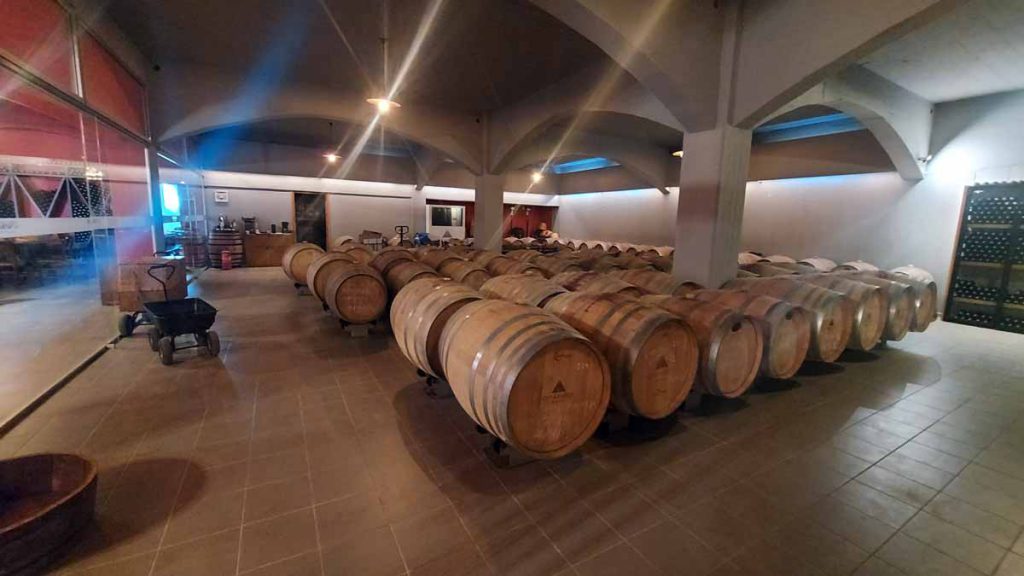
Currency/Credit Cards/ATMs
As a member of the European Union, Greece uses the Euro (€) as its currency. You can easily obtain Euros from your local bank in most countries given how commonly it is used. There are also currency exchanges in most major airports and ATMs located throughout the country. We prefer to get currency from a local ATM, which are plentiful in most Greek towns and cities. This allows us to get cash as needed and avoids carrying too much while travelling.
Additionally, most Greek merchants take credit cards, which often provide a decent exchange rate and are convenient to use. However, you will need cash for markets, street vendors, and similar small businesses. It’s always a good idea to notify your credit card provider that you will be travelling to Greece to avoid potential transactional issues due to fraud prevention mechanisms typically used by major credit card companies.
You can find information about current exchange rates from your preferred currency to Euro’s at this link.
Tipping
While Greece doesn’t have the same tipping culture that is traditional in North America, there is a general appreciation and a common expectation that service individuals are modestly tipped. Tipping of 5 – 10% is generally considered customary and adequate. While some people don’t feel that tipping is required, we consider it good form to tip for good services and always leave about 10%, which was greatly appreciated by the recipients.
Electrical Requirements
The electrical system in Greece operates on a 230v 50 Hz system. This system is common in many European countries. Many of your devices will be compatible with this voltage, but you must check to be sure. Nearly all electrical devices have some description of their voltage requirements on or attached to the device. A quick check for compatibility can save you the grief of a fried device or small appliance.
The outlets in Greece are type F or Type C. If you are travelling from a country that uses another type of outlet you will need adapters to plug in your devices. A power converter is only required if your device is not compatible with the 230V 50 Hz system used in Greece.

General Safety
As a general rule, we found the towns and cities in Greece to be safe and accommodating for visitors. Of course, you must always follow common travel safety considerations such as staying in areas that are well-travelled, travelling with minimal cash, avoiding excessive jewellery or other conspicuous signs of wealth, and being sure that you provide an itinerary to friends and/or family.
You can visit our Travel Safety – Know Before You Go post for in-depth information on how to best enjoy your travels without incident.
Food and Water Safety
When we travel, we always stick to bottled, sanitized water to avoid the consequences of encountering bacteria and minerals that our digestive systems cannot tolerate well. The water in Greece is generally safe to drink, however, each locale can have different bacteria in the water that your system may not be accustomed to. Sticking to bottled water avoids an unpleasant encounter with these bacteria. Additionally, it’s always wise to be careful about uncooked food that might be washed or rinsed using local water sources. Things like salads are often best to be avoided when travelling. Use your judgement, of course.
The food in Greece is amazing and generally made up of the typical Mediterranean cuisine. Lots of seafood, olives, vegetables, and similar delights can be found in the multitude of local restaurants that you will encounter. It’s always wise to be cautious about streetside food provided by cart vendors and the like. If you choose to partake, be sure that the food is well cooked to eliminate the likelihood of food borne bacteria.

Hiking the Samarian Gorge on Crete
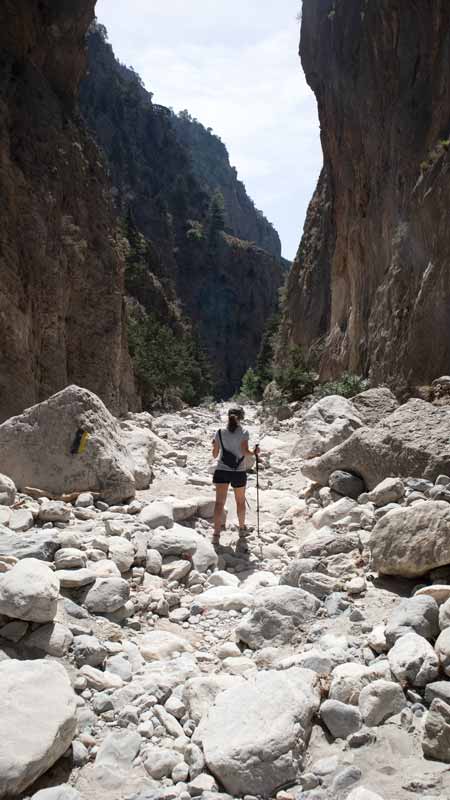
At the Depth of the Gorge
“We travel not to escape life, but for life not to escape us.”
~ Unknown
Quick Quirky Things to Know
Put Your Toilet Paper in the Can – Due to the older septic systems in many of the Greek towns and cities, many restrooms ask that you put the paper in a can, rather than flushing. It may not be customary for you but do honor this request to preserve the cleanliness of the restrooms for others.
Avoid Using the Airport Currency Exchange Machines – If you can, avoid using the current exchange machines in the airports. Currency exchange offices are fine, but the machines can be difficult to use, unreliable, and don’t provide the best exchange rates.
Streets are Older and Hard to Navigate– The streets in Greek towns and cities are older, often ancient, and can be difficult to naviage. Street name signs are often not avialable and the streets are typically not arranged in a grid, like many North American cities. Google maps an similar services do pretty well with navigation, but do require a live data connection over wireless, which can be expensive.
Be Aware of the Cruise Ship Crowds – If you are not travelling by cruise ship, you should consider visiting coastal towns and cities in the morning or late afternoon/evening hours. Cruise ships often have excursions to shore between roughly 10 AM and 4 PM. These often bring very large tour groups resulting in the small and narrow streets and shops becoming crowded.
Driving Can Be Insane – Like many major cities, driving is very difficult, with laws and rules often treated more like suggestions in the town and cities. If you choose to drive, drive with caution and be alert and patient. The Greeks drive on the right-hand side of the road and all vehicle occupants are required to wear seatbelts.
Consider AirBnb or VRBO – These services often provide very comfortable accommodations at a reasonable price. They can serve as good alternatives to hotels and hostels, especially if you’re traveling in a larger group. We had excellent experiences with our AirBnB hosts. Be sure to check reviews and ratings prior to bookings.

Oia on Santorini Island
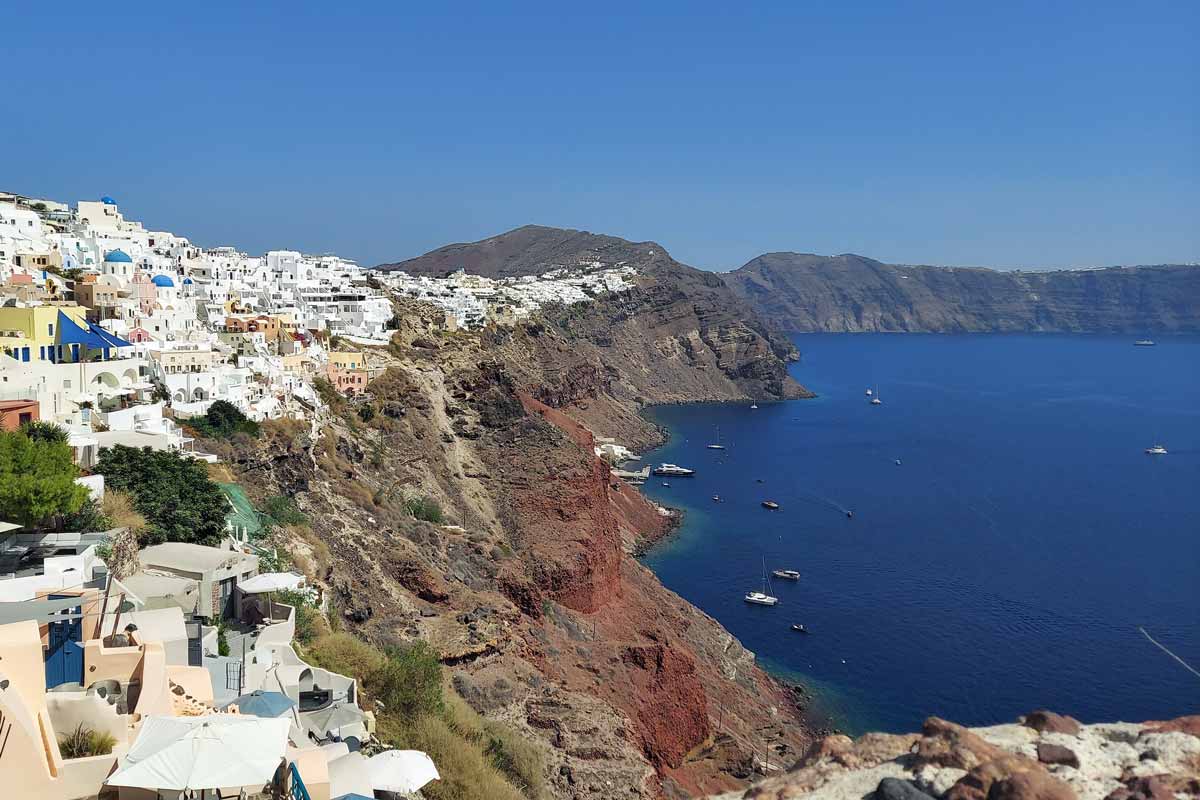
The Fira Coast on Santorini
Cool Things to Do While You’re in Greece
Take a Jet Boat Between the Islands – Travel between the Greek Islands is often necessary and occasionally required if you’re going to really see the country. Jetboats provide a very comfortable and unique way to travel. These large ships provide comfortable quarters and high-speed connections between many of the islands. It’s a unique experience to stand on the top deck of the jet boat with the smell of the sea and the wind in your hair.
Try Greek Yogurt and Honey – Greek yogurt is a classic style of an age-old dairy treat, a bit thicker and tarter than the standard variety. Try it with local honey as a topping. It’s a delicious treat, often served like ice cream. If this is not to your liking we found that there were many options for other toppings including citrus fruits, nuts, figs, and other exotic fruits. In Greece, the yoghurt shops are more common than ice cream vendors.
Visit the Beaches – It’s not surprising that the Greek islands are rich with beautiful beaches given that the country is made up of a large number of islands in the Mediterranean. Visit the beaches where you are visiting. Santorini, for example, has amazing black volcanic beaches. Many of the other islands, such as Crete, Mykonos, Paros, Naxos, and Milos are known for their great beaches.

Visit the Islands – Greece, being a nation of over 2,000 islands, has a huge variety of geographic and ecological environments, each unique in its own way. Be sure to visit more than one or two islands during your stay in Greece. The island landscapes range from desert-like arid conditions in Santorini to a densely forested hilly landscape in Crete. Visiting multiple islands will really help you experience all that Greece has to offer.
Take a Guided History Tour – A guided tour is one of the best ways to learn about the history of a country, city or area. We often take a tour with a certified guide to learn more about the historical details of an area and the significant landmarks and sites. We’ve found that you learn things about details with a guide that you would otherwise unknowingly walk right by. This is a great way to experience a country and to learn about the historical details. Be sure that your guide is certified to ensure the best possible quality of service. We use Get Your Guide rather frequently in our travels, as we did to connect with Angel, our guide in Athen.
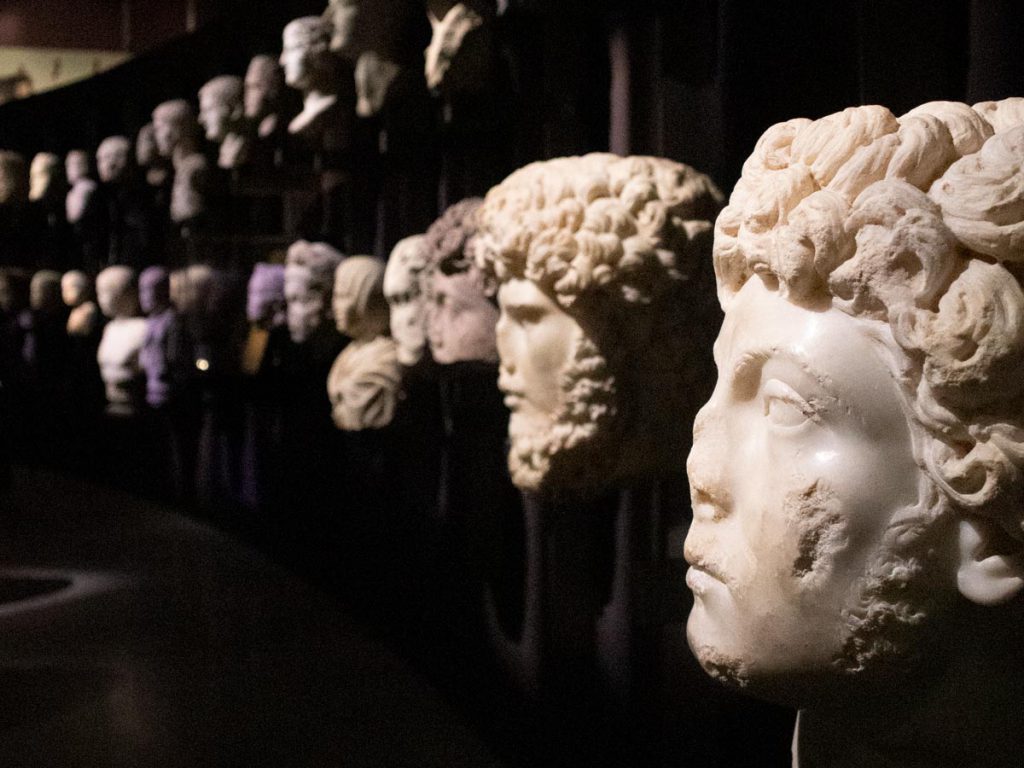
Watch the Sunsets – The western side of many of the Greek islands provides the opportunity to watch some of the most spectacular sunsets in the world. Find a beach, a restaurant, or just a place to sit on a west-facing bluff and watch some of the most romantic sunsets you’ll ever experience.
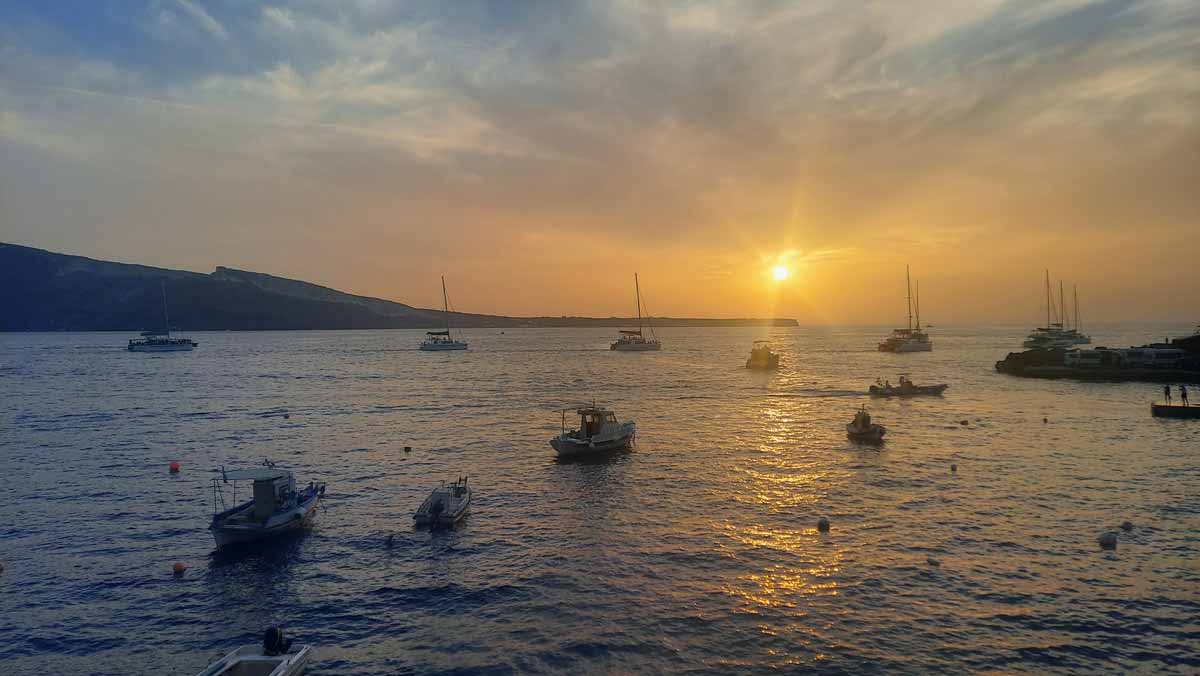
Take a Food Tour – Another excellent option, if you’re into the food scene while travelling, is to book a walking food tour with a local agency. We did that in Athens with Get Your Guide and our guide Angel was amazing, providing the opportunity to taste some of the best Greek delicacies at locations preferred by the locals. If you do this early during your stay you will have the opportunity to revisit your favorite spots.
Visit a National Park – Greece has 10 national parks. Visit at least one of them. We hiked in the Samarian George National Park, which has some of the most spectacular, rugged hiking trails that we have ever experienced. We took the bus to the top rim of the gorge and hiked the 11 km trail back down, experiencing some of the very best views and hiking. Be sure to do your research and wear suitable hiking footwear or you will not be allowed to enter the trail, for your own safety.
Sorry, no posts matched your criteria.
The Greek islands provide a wealth of reasons to visit. If you’re into culture and history few places in the Western world provide such a rich list of sites and significant events as Greece. If you like beaches, there are many. If you prefer to hike and experience nature the national parks and island trails are amazing. If you like to ski, check out the Northern mountains during the winter months. If you love good food and Mediterranean cuisine it’s plentiful in Greece. Greece, and all that it has to offer is difficult to see in one trip. Pick your favourite spots, visit two or three locations in a week, more if you are staying longer, and enjoy all that these historic islands have to offer.
March 24, 2024

